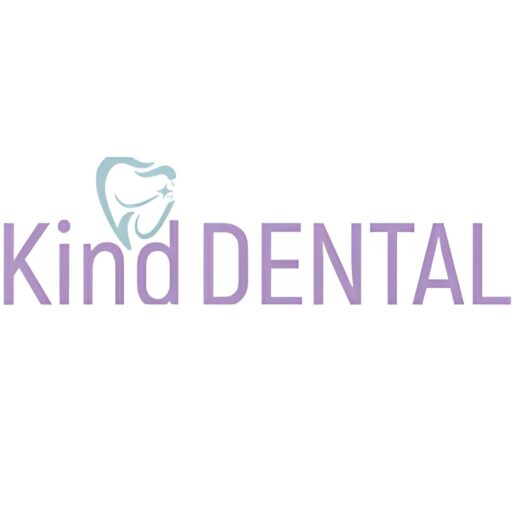Pre & Post Operative Instructions
FAQ
PRE-OPERATIVE INSTRUCTIONS
How to prepare for my upcoming dental appointment?
Please eat a full breakfast or lunch as applicable and take your medications as you normally would
If you are getting an extraction or a root canal done, it is advisable to take 600mg Ibuprofen (3 tablets of Advil) or 500mg acetaminophen (extra strength Tylenol) 30 minutes prior to your appointment to reduce inflammation.
If you have had a joint replacement or had a heart valve replacement, call the office to check if you need to take an antibiotic prior to your appointment
POST OPERATIVE INSTRUCTIONS AFTER A ROOT CANAL TREATMENT
Do not eat or drink until after the numbness has worn out as you may bite your lip and tongue or burn yourself. If you must have something, have a smoothie.
If a procedure was done on an upper tooth, the numbness takes about 1-2 hours from the time of anesthesia administration to wear out, If you had a lower tooth worked on, it can take anywhere between 2-4 hours to wear out and for some people, it can be even longer.
Once your anesthesia has worn out, your tooth and surrounding gums will be tender to touch and pressure. This soreness can last anywhere between 2 days to 2 weeks and sometimes even longer (every patient is different). As long as the discomfort is getting better everyday, it’s heading in the right direction.
Do not eat on the treated side until that soreness completely goes away. This gives the tooth the opportunity to heal from the procedure.
f you are able to take a NSAID, please start taking 800mg Ibuprofen (4 tablets of Advil) every 8 hours for the next 48 hours after the procedure. In between, if you feel the soreness starting to buildup, you can take a regular strength tylenol in between the ibuprofen regimen (around 4 hours from your previous ibuprofen intake).Please continue to alternate the Ibuprofen and Tylenol in this manner for at least 48 hours and as needed after, This helps you stay ahead of the pain and soreness, reduces your inflammation and allows you to have a smoother recovery. Also, your tooth may feel shorter to reduce the pressure on your tooth allowing it to heal and to reduce your discomfort.
POST OPERATIVE INSTRUCTIONS AFTER AN EXTRACTION
- You will be leaving with a gauze on your extraction site. Bite down on that gause with firm pressure ( no need to clench) for about 30 mins and then discard it. If the gauze is bright red, bite on another fresh piece of gauze for an additional 30 mins. You may to do this several times until the gauze is pink
- Eat something cold and soft ( like ice-cream, yogurt, mashed paptoes and scrambled eggs) the day of the procedure. Anything you eat on the day of the procedure should be room temperature and cooler. You can start having warm foods the next day. Please make sure your food does not contain any seeds that can get stuck inside the extraction site and cause an infection.
- Do not rinse or spit for 24 hours after surgery.
- Keep your fingers and tongue away from the socket or surgical area.
- Use ice packs on the surgical area (side of face) for the first 48 hours; apply ice 20 minutes on and 10 minutes off. (Note: Bags of frozen peas work well.)
- For mild discomfort, take Tylenol® or ibuprofen every 3–4 hours.
- For severe pain, use the medication prescribed to you.
- Drink plenty of fluids. (Do not use a straw for 4 days—this creates suction in the mouth that could cause complications.)
- We suggest that you do not smoke for at least 5 days after surgery.
- Avoid strenuous activity and do not exercise for at least 3–4 days after surgery. After that, be careful: your regular caloric and fluid intake have been reduced, so you may get light-headed, dizzy, or weak.
- If the muscles of the jaw become stiff, the use of warm moist heat to the outside of your face over the spots that are stiff will relax these muscles.
- After the first post-operative day, use a warm salt water rinse following meals for the first week to flush out particles of food and debris that may lodge in the surgical area. (Mix ½ teaspoon of salt in a glass of warm water. Mouthwash can be added for better taste.)
- Your diet should consist mainly of soft, easily swallowed foods and cool drinks. Avoid anything that might get stuck in your teeth, so no seeds, nuts, rice, popcorn, or similar foods.
POST OPERATIVE INSTRUCTIONS AFTER A DENTAL FILLING
- Do not eat or drink until after the numbness has worn out as you may bite your lip and tongue or burn yourself. If you must have something, have a smoothie.
- If a procedure was done on an upper tooth, the numbness takes about 1-2 hours from the time of anesthesia was administered to wear out, If you had a lower tooth worked on, it can take anywhere between 2-4 hours to wear out and for some people, it can be even longer.
- The tooth may be sensitive to temperature and chewing for a few days but it should settle down anywhere from 2 days to 2 weeks and it is not a concern as long as it is progressively feeling better each day. If the tooth is starting to feel worse, please give us a call to schedule for an evaluation.
- For a filling: it is perfectly fine to eat your normal diet if you had a filling completed today but listen to your body. If the tooth feels sensitive to harder foods, give it a couple of days and try again.
- You can brush and floss/waterfloss around your filling as normal.
- It is normal for the bite to feel different after a filling crown as long as you feel all your teeth are touching evenly when you bite down. If one side feels higher than the other, please give us a call for a simple adjustment. DO NOT IGNORE THIS STEP BECAUSE A HIGH BITE CAN MAKE THE TOOTH PAINFUL/SENSITIVE IF NOT TAKEN CARE OF IN A TIMELY MANNER.
- The gums and the area where the anesthesia was administered can be sore for 24-48 hours. take an OTC pain reliever such as Tylenol or motrin (if you are able to take these medications) prior to the numbness wearing out completely so you minimize any discomfort. Also, Rinsing with warm salt water every 4-6 hours helps with soreness of the gums.
POST OPERATIVE INSTRUCTIONS AFTER A DENTAL CROWN
- Please do NOT eat anything hard and sticky with your temporary crown as it may break or pull it out.
- Continue to bruh it as you normally would. When you floss, put the string floss in and slide it out by the side (Do NOT pull the floss out).
- If you use a water flosser, reduce the setting at a level 2-3 when using it around the temporary crown.
- It is normal for the tooth to be more sensitive to temperature during the temporary crown. This gets better when we give you the permanent crown. If the tooth is very sensitive making it hard for you eat and makes the tooth throb, please call the office
- If the bite feels high with your temporary crown, please call the office immediately for an adjustment.
- The gums and the area where the anesthesia was administered can be sore for 24-48 hours. take an OTC pain reliever such as Tylenol or motrin (if you are able to take these medications) prior to the numbness wearing out completely so you minimize any discomfort. Also, Rinsing with warm salt water every 4-6 hours helps with soreness of the gums.










